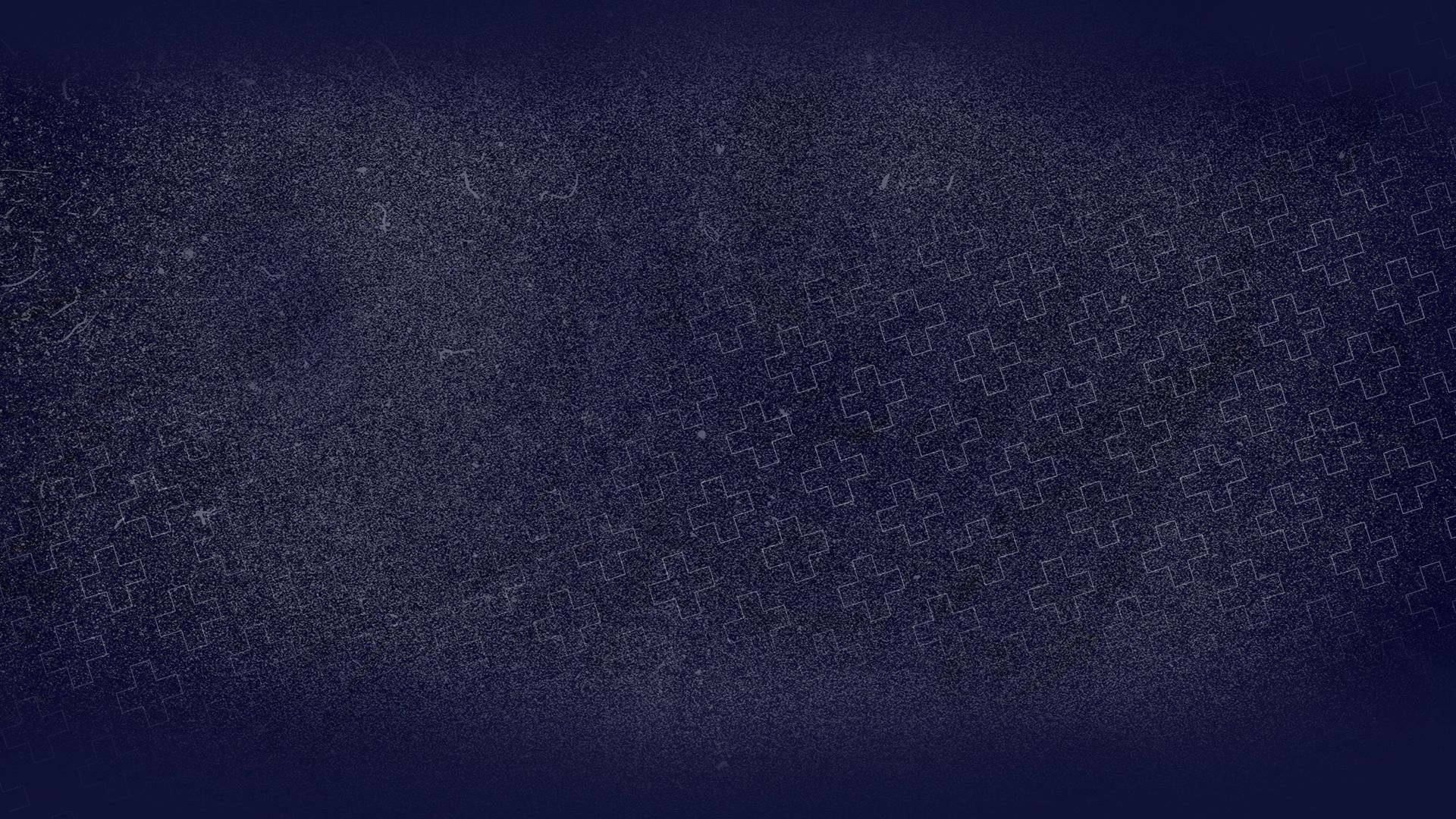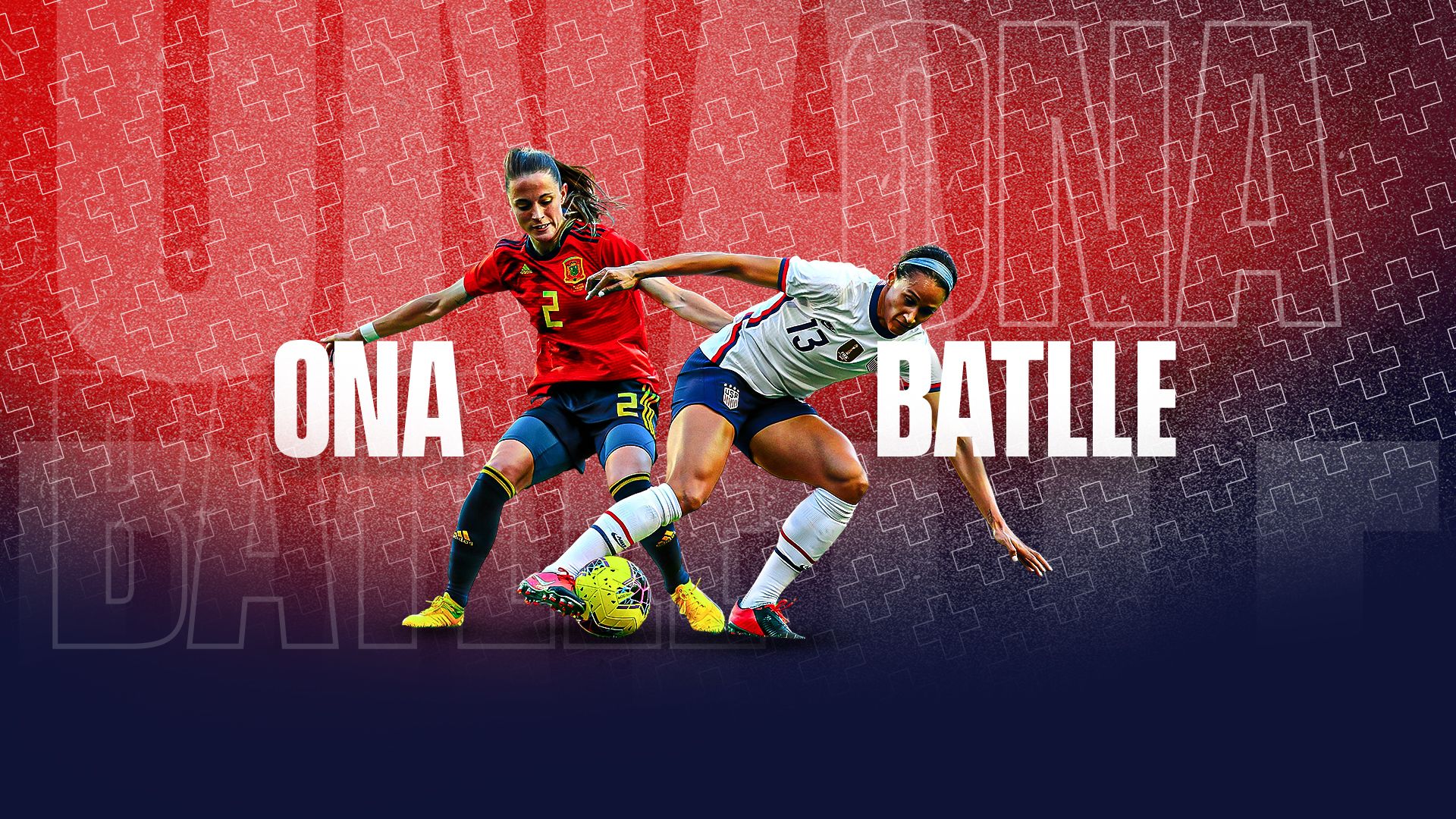
ONA BATLLE
Written by: Amee Ruszkai
‘She’s always on top’ - Ona Batlle rising to become one of the world’s best full-backs
Presented by

Whether it’s watching Ona Batlle play football or listening to her speak about it, FC Barcelona will always be a central theme.
Born a 30-minute drive from the iconic Camp Nou, Ona and her whole family are fans of the Blaugrana. As a child, Carles Puyol was her favourite player. When she got a little older and played more as a full-back, she looked up to Dani Alves. She joined the club aged 12 and the playing style it is synonymous with is evident in her game.
So much about Batlle’s football story is about Barcelona – except for one big thing.
When she sits down to talk to GOAL, she’s in England. She’s wearing a polo shirt marked with a different crest, albeit one just as recognisable. That same badge towers over the defender on the wall behind. Asked why she chose to leave Spain and join this iconic club, she replied: “Well, it’s Manchester United.”
At 22 years old, Batlle is considered one of the most exciting young players in the world. In the Women’s Super League, you’d be hard-tasked in finding a full-back that has been better since she made her competition debut in September 2020.
Somewhat paradoxically, the catalyst to her establishing herself in this regard was her departure from Barcelona. After six years in the youth programme and the ‘B’ team, Batlle had only made one matchday squad for the first team and made no appearances.
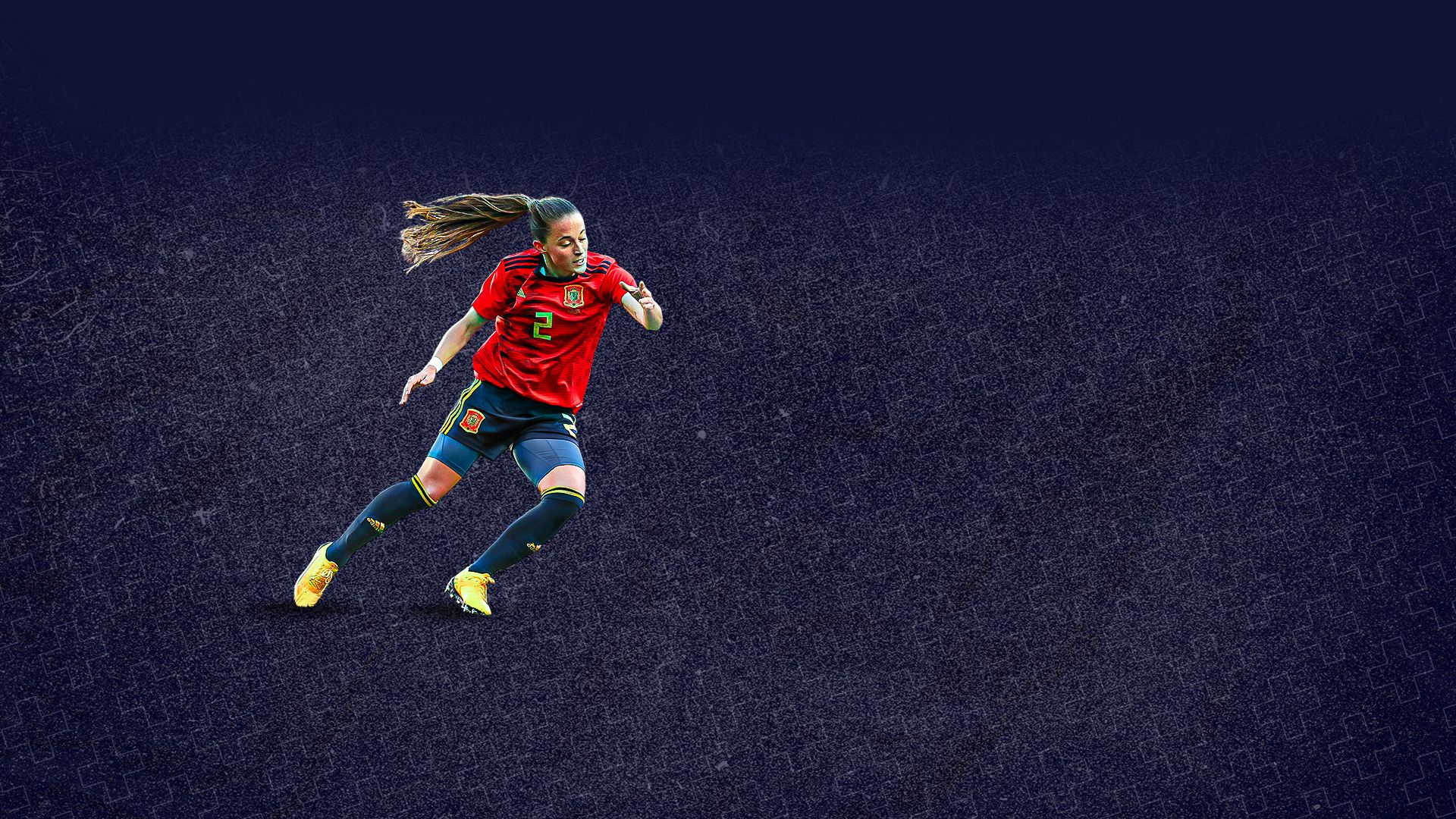
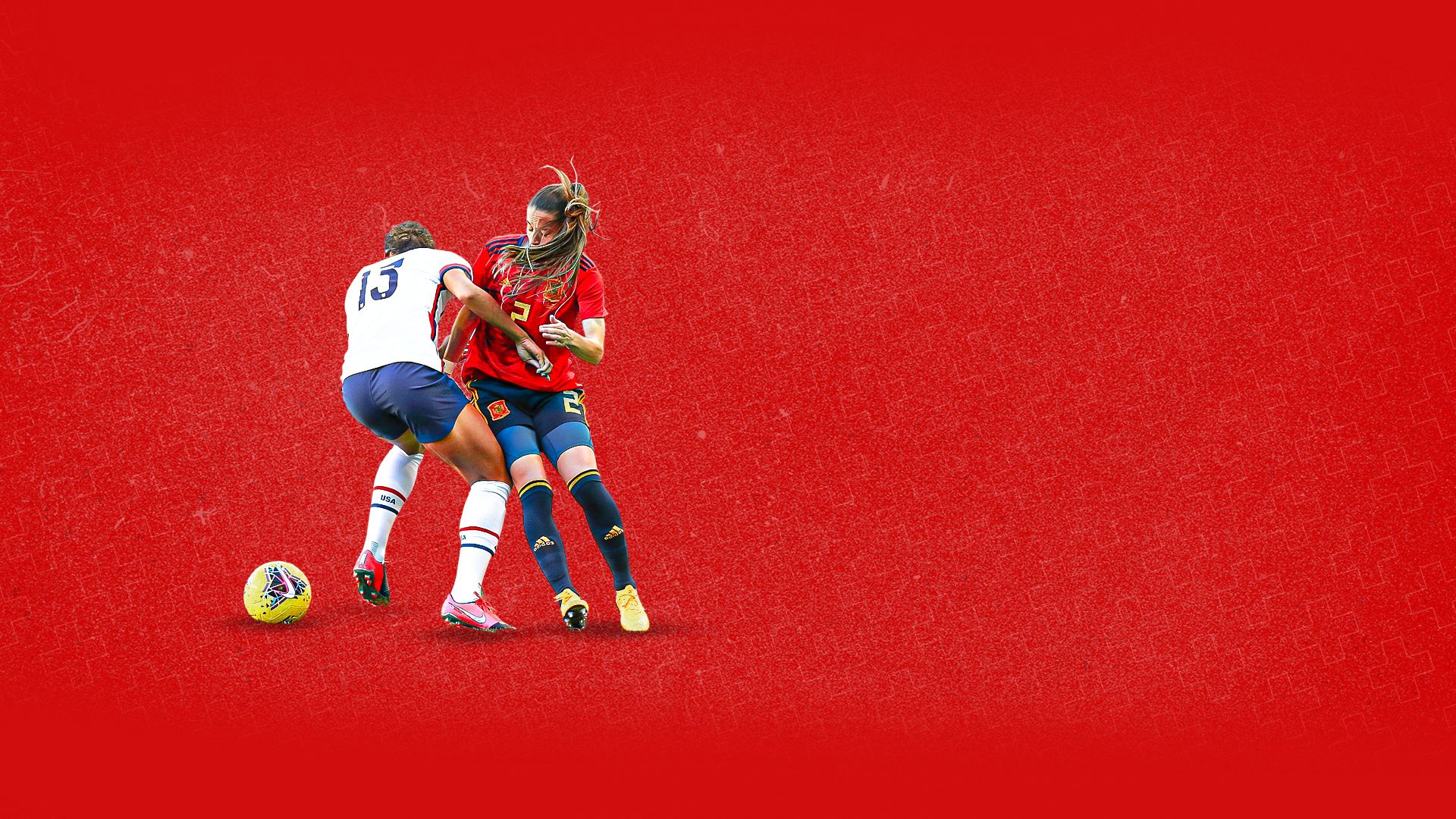
ONA BATLLE
Written by: Amee Ruszkai
‘She’s always on top’ - Ona Batlle rising to become one of the world’s best full-backs
Presented by

Whether it’s watching Ona Batlle play football or listening to her speak about it, FC Barcelona will always be a central theme.
Born a 30-minute drive from the iconic Camp Nou, Ona and her whole family are fans of the Blaugrana. As a child, Carles Puyol was her favourite player. When she got a little older and played more as a full-back, she looked up to Dani Alves. She joined the club aged 12 and the playing style it is synonymous with is evident in her game.
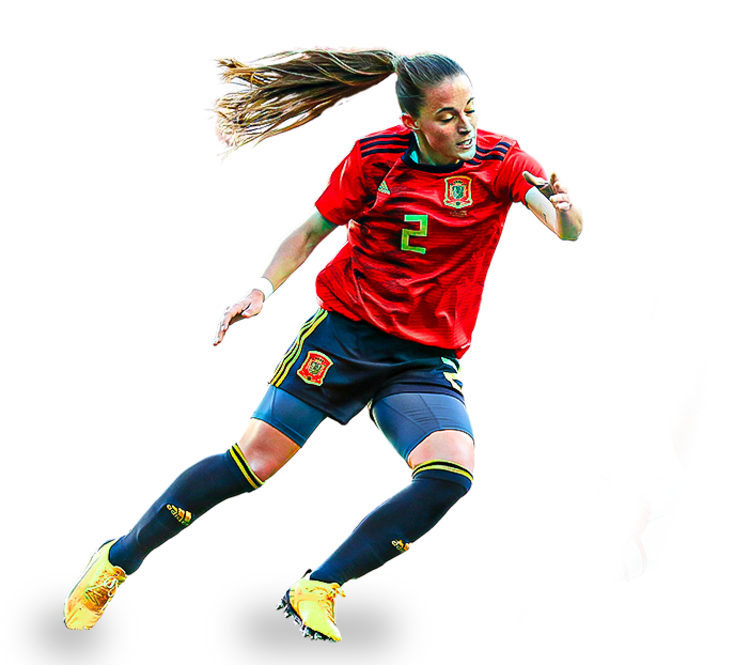
So much about Batlle’s football story is about Barcelona – except for one big thing.
When she sits down to talk to GOAL, she’s in England. She’s wearing a polo shirt marked with a different crest, albeit one just as recognisable. That same badge towers over the defender on the wall behind. Asked why she chose to leave Spain and join this iconic club, she replied: “Well, it’s Manchester United.”
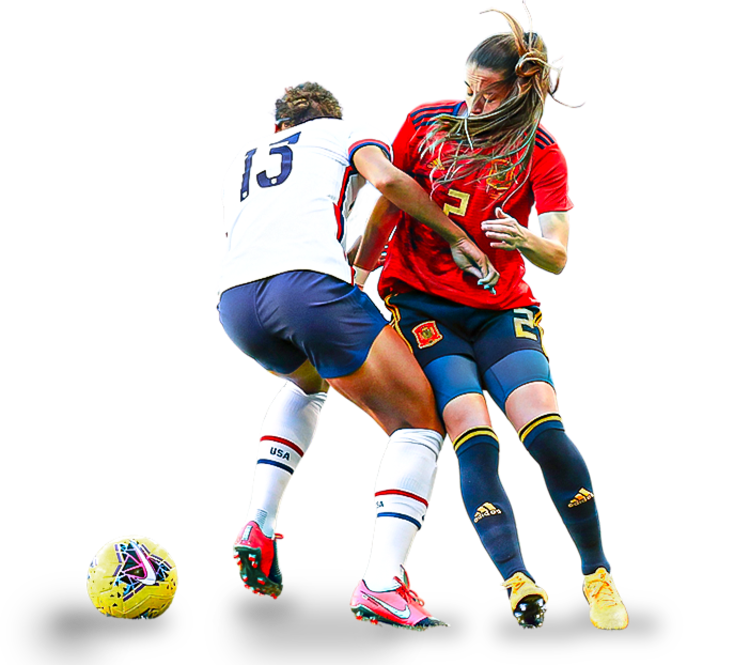
At 22 years old, Batlle is considered one of the most exciting young players in the world. In the Women’s Super League, you’d be hard-tasked in finding a full-back that has been better since she made her competition debut in September 2020.
Somewhat paradoxically, the catalyst to her establishing herself in this regard was her departure from Barcelona. After six years in the youth programme and the ‘B’ team, Batlle had only made one matchday squad for the first team and made no appearances.


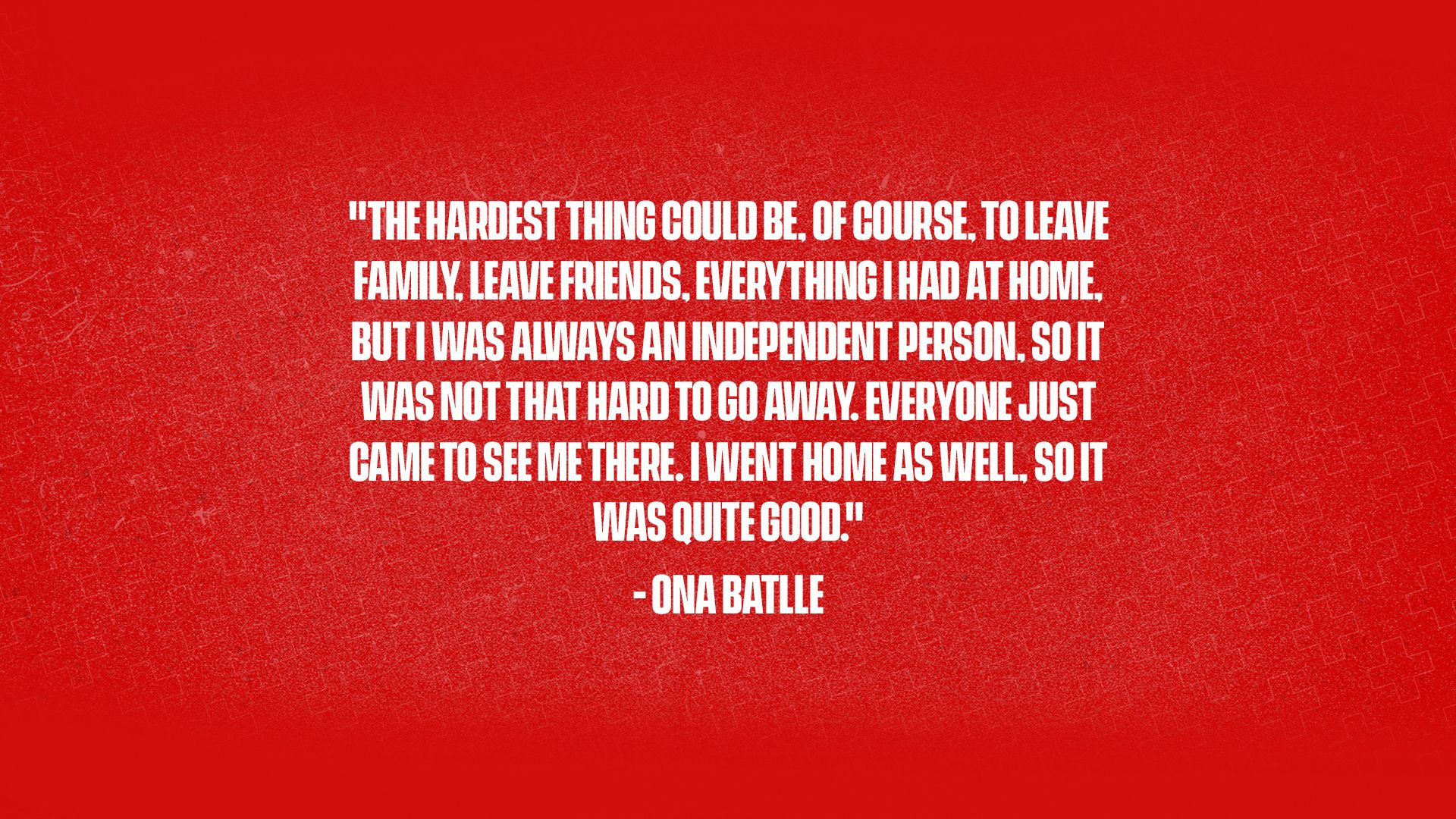
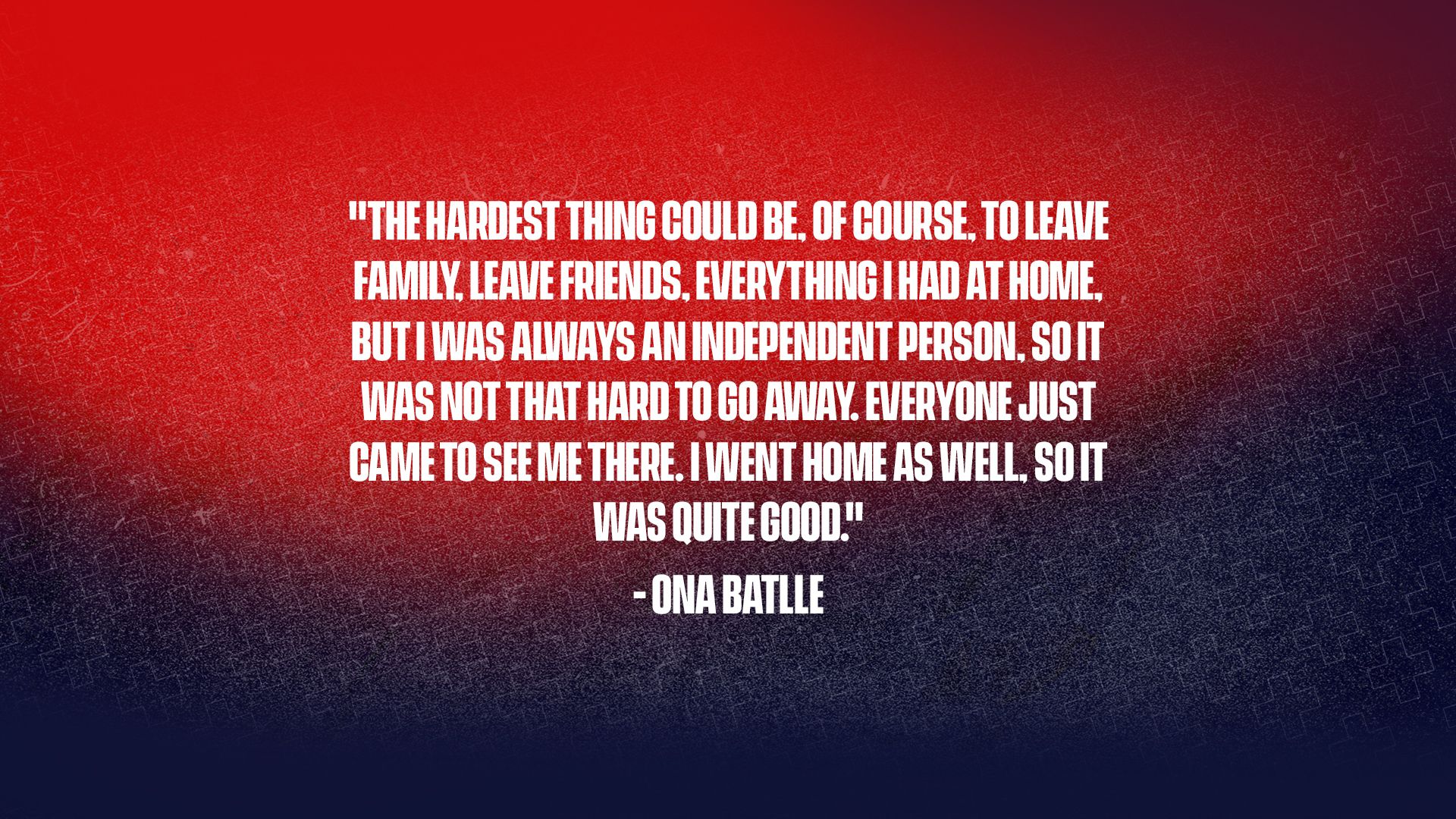
So, in the summer of 2017, she made a decision that she describes as “a little bit selfish”. She left home, on her own, and joined Madrid CFF – then a newly-promoted side, now a fixture in the top half of the table.
“What I wanted to do in that moment, it was just to grow up as a player,” she tells GOAL. “I just wanted to play in the top league.
“The hardest thing could be, of course, to leave family, leave friends, everything I had at home, but I was always an independent person, so it was not that hard to go away. Everyone just came to see me there. I went home as well, so it was quite good.
“I think it was one of the most important things - I really like what I did. I would do it again.
“I learned a lot from my teammates. I had really good teammates and experienced teammates. I think when you are playing, it's when you are learning the most. I think for that reason, you grow up.”
The maturity Batlle gained would show in her football, too. Having played further forward at times early in her career, she started to settle as a full-back. She thrived in Madrid and attracted the attention of Levante, a top three team in both of her seasons there. While with the Valencia-based club, she would get her first national team call-up.
Jorge Vilda, head coach of Spain, knew of Batlle well before he first included her in one of his squads. He recalls seeing her play while she was with Barca and, when GOAL asks what stood out to him about the youngster, he highlights her speed, competitiveness and character.
“Since she was a child, it was really clear that she wanted to be among the best players,” he adds.
When Vilda started to coach Batlle himself, there was more he could learn about that ambition within the defender.
“She always tries to give her best, to improve herself. Whatever I tell her, she does it,” he says. “She's very disciplined. She is a player whom you can trust. She's always giving her best. She's not an inconsistent player, sometimes a five, sometimes an eight. She's always on the top.”
Such qualities did not go unnoticed by other clubs. According to reports, both Barcelona and Real Madrid were interested in signing Batlle in the summer of 2020, but Levante’s domestic rivals had to pay a large fee to acquire her. Instead, a move abroad beckoned – and a big one, at that.
From the outside looking in, Batlle took to life in England like a fish to water. Her competitive debut, against reigning champions Chelsea, was phenomenal, and her entire first – and second – season followed suit.
Off the pitch, though, it was a huge step, even for someone as independent as she is. The pandemic made things extremely difficult, while not speaking the language is something she describes as making her “tired in my mind” on week one.
A strong friendship with Ivana Ferreira Fuso, the Brazil international forward who signed the same summer, blossomed, though, and easing COVID measures have allowed her to enjoy things even more off the pitch.
“I like to visit everything,” Batlle says. “I went to London. I really like it. I really like to see how different it is from Spain to be honest, the UK. I really like to be here.”
On the pitch, she’s only getting better. She has nailed down the modern full-back’s identity, with her defensive game so good that she describes it as being “easier” for her than attacking, despite her sometimes being a winger in the past.
“She could be soon among the best defenders in the world, but she can improve herself,” Vilda, who “values” her “courage” to move abroad, says. “Her understanding of the game and making decisions, in crosses and in her offensive capacity.”
Batlle doesn’t disagree - “I really enjoy when I'm attacking, but I just want to be more perfect, get more assists, score more” - but there’s another area she is targeting, too.
“Sometimes I think I want to be so perfect. I want to do everything right,” she explains. “Now, I'm improving, as well, my mindset because sometimes I'm too hard with myself.
“I just want to be the best player I can be. I think I have a lot of things to work on, a lot of things to improve, but it's a thing that I like, because I know I can be much better.”
When Batlle was coming through as a young player, the women’s game in her home country was in a very different place.
Spain has a rich footballing history, but the women’s national team only qualified for its first World Cup in 2015. There, the team exited in the group stages. In the aftermath of that tournament, head coach Ignacio Quereda, who was in his post for 27 years, was dismissed. Allegations have been levelled against him by several players since, of inappropriate behaviour, bullying and psychological abuse.
In the years since, the national team has flourished under Vilda, giving the U.S. women’s national team a serious scare in the knockout rounds of the 2019 Women’s World Cup.
His work has coincided with the continued investment and subsequent success of European champions Barcelona. The club has set the bar high and that is only encouraging other Spanish clubs to follow suit, while naturally improving the quality of the domestic league.
Many of Barca’s players – many of whom are Spain internationals – are among the best players in the world. For Batlle, to see these players at such a high level is inspiring.
“They work so hard to be where they are,” she says. “I think they inspire everyone. Myself, I am really proud of them, and I really want to be there as well.”
With Manchester United, the 22-year-old shows - week in, week out - that she can be one of the very best. At this month’s Arnold Clark Cup, she’ll have further opportunities to do so.
Coming up against some dangerous forwards that she faces regularly – such as England and Manchester City’s Lauren Hemp – and some that she sees less so – like Germany’s Jule Brand
– Batlle’s resolve will continue to be tested. But she likes that.

Tickets to watch England, Germany, Spain and Canada play in the Arnold Clark Cup are available now.
Matches are being broadcast live in the UK on ITV.
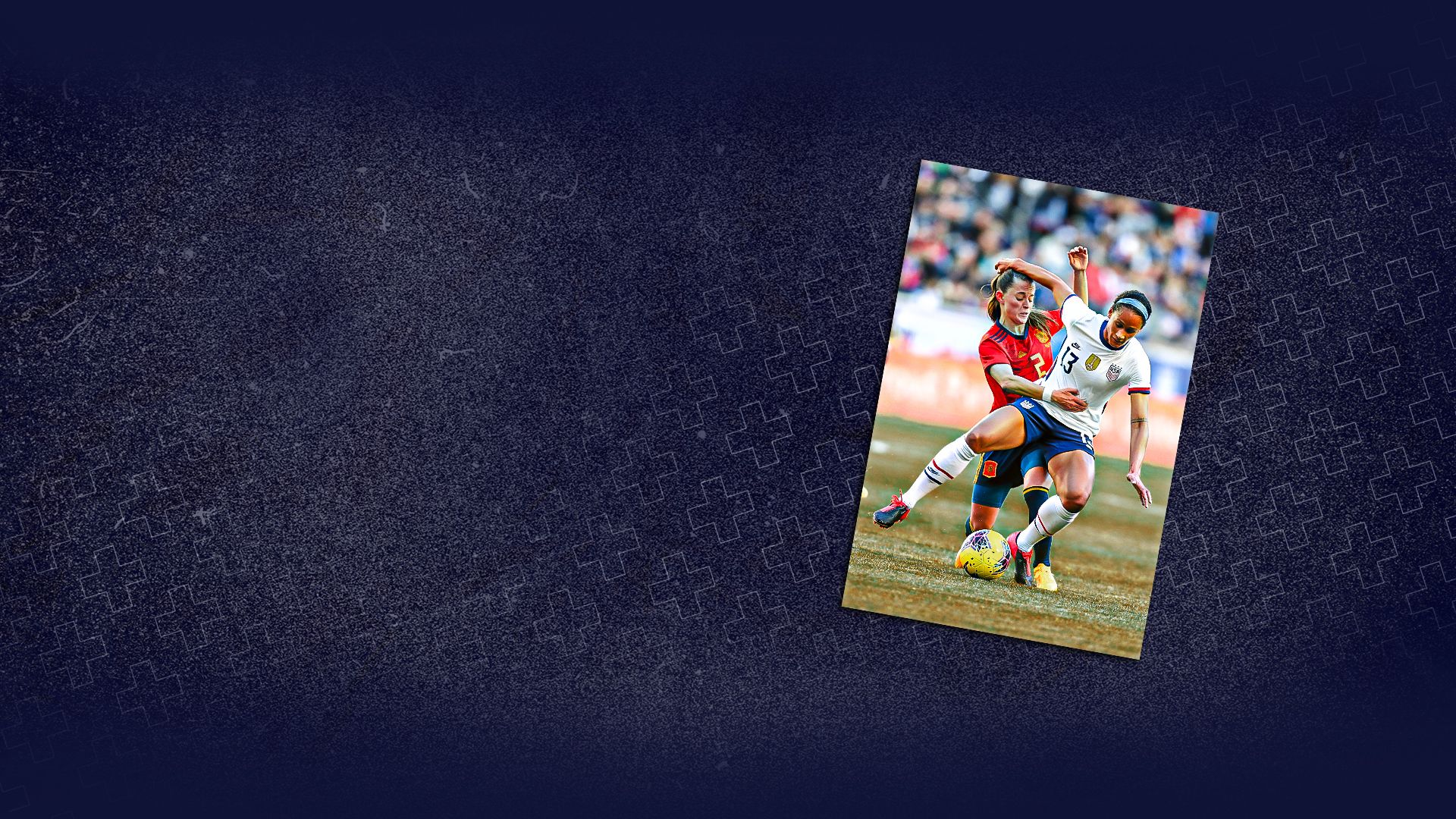
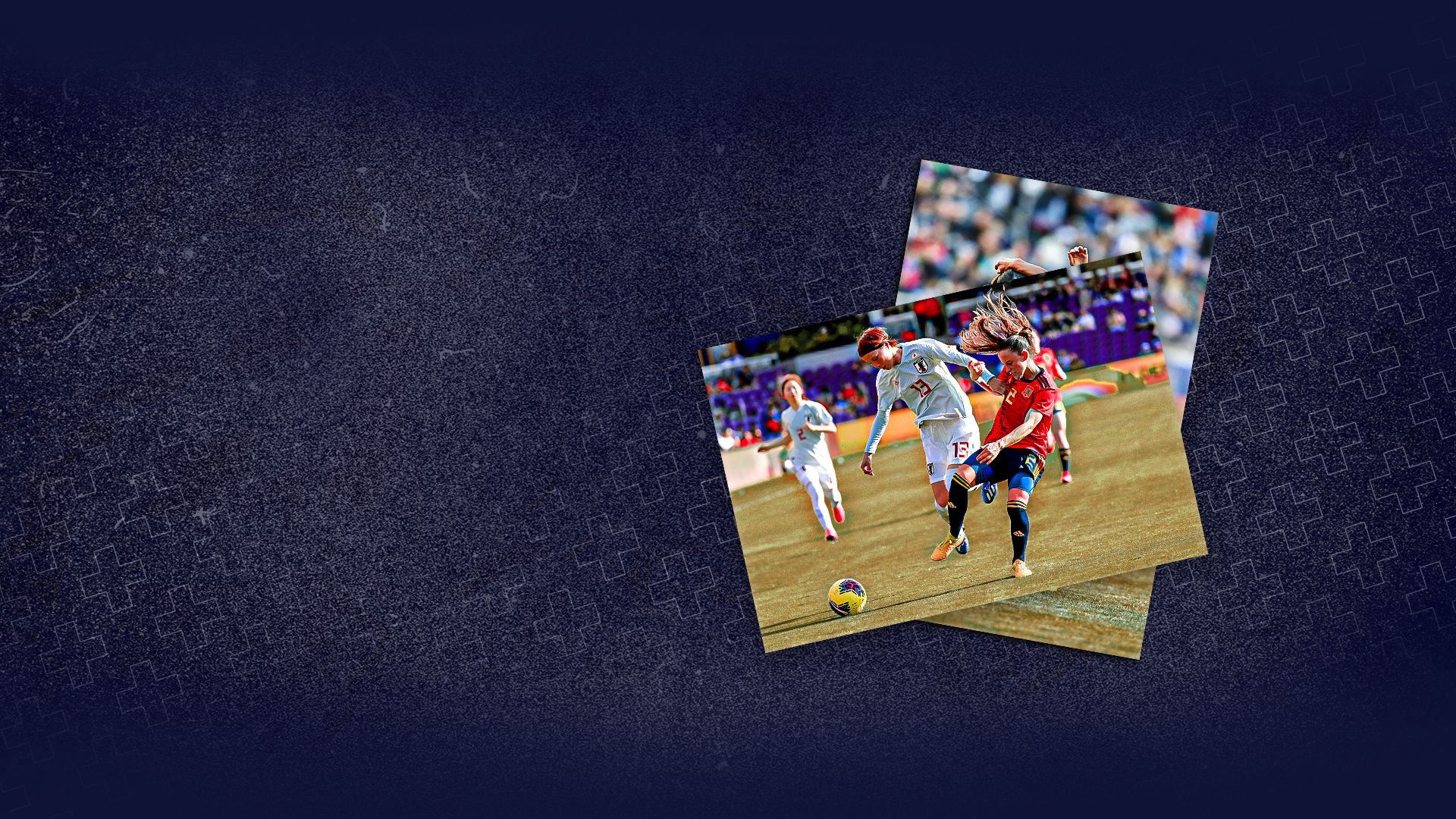
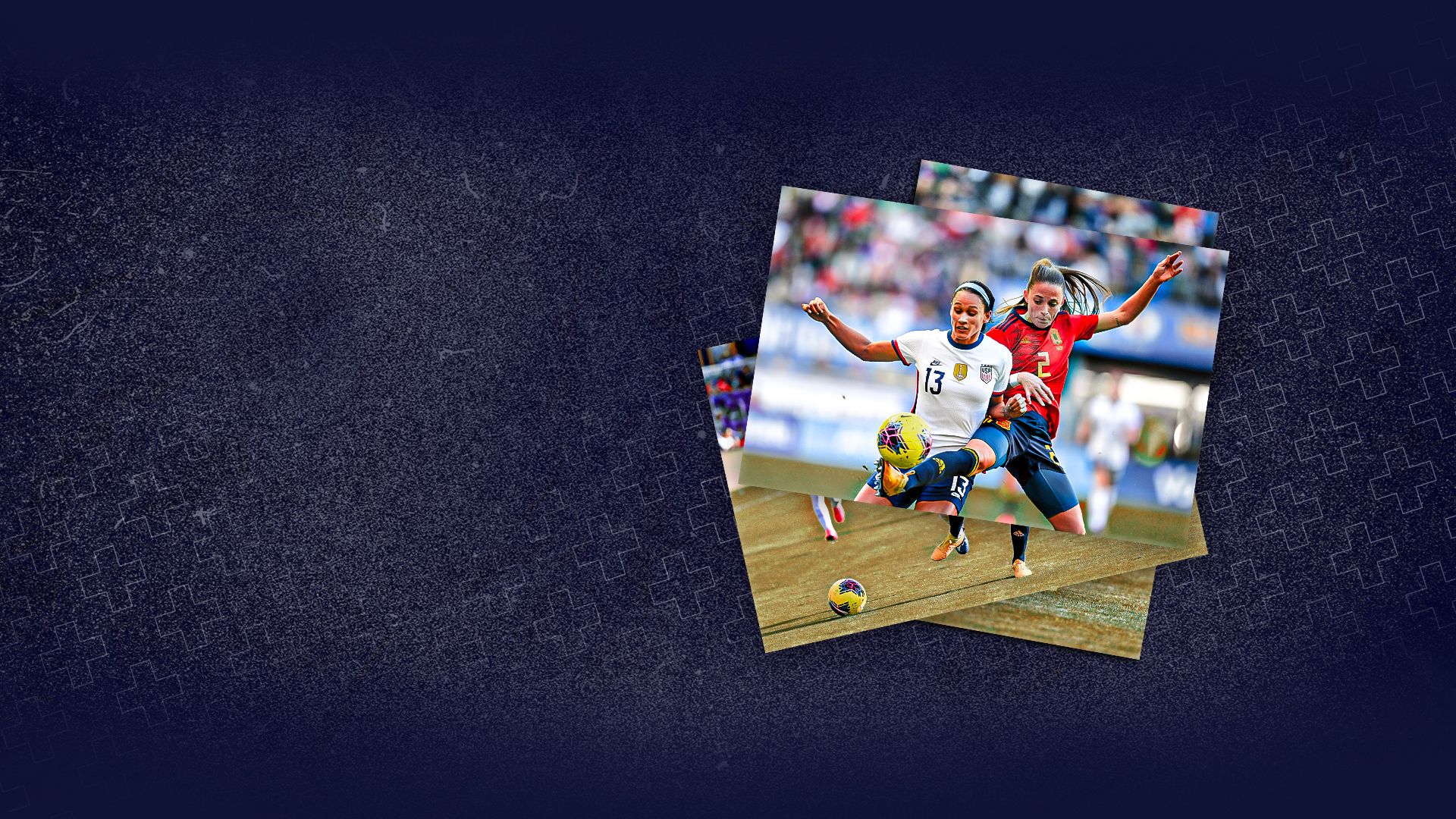
So, in the summer of 2017, she made a decision that she describes as “a little bit selfish”. She left home, on her own, and joined Madrid CFF – then a newly-promoted side, now a fixture in the top half of the table.
“What I wanted to do in that moment, it was just to grow up as a player,” she tells GOAL. “I just wanted to play in the top league.
“The hardest thing could be, of course, to leave family, leave friends, everything I had at home, but I was always an independent person, so it was not that hard to go away. Everyone just came to see me there. I went home as well, so it was quite good.
“I think it was one of the most important things - I really like what I did. I would do it again.
“I learned a lot from my teammates. I had really good teammates and experienced teammates. I think when you are playing, it's when you are learning the most. I think for that reason, you grow up.”
The maturity Batlle gained would show in her football, too. Having played further forward at times early in her career, she started to settle as a full-back. She thrived in Madrid and attracted the attention of Levante, a top three team in both of her seasons there. While with the Valencia-based club, she would get her first national team call-up.
Jorge Vilda, head coach of Spain, knew of Batlle well before he first included her in one of his squads. He recalls seeing her play while she was with Barca and, when GOAL asks what stood out to him about the youngster, he highlights her speed, competitiveness and character.
“Since she was a child, it was really clear that she wanted to be among the best players,” he adds.
When Vilda started to coach Batlle himself, there was more he could learn about that ambition within the defender.
“She always tries to give her best, to improve herself. Whatever I tell her, she does it,” he says. “She's very disciplined. She is a player whom you can trust. She's always giving her best. She's not an inconsistent player, sometimes a five, sometimes an eight. She's always on the top.”
Such qualities did not go unnoticed by other clubs. According to reports, both Barcelona and Real Madrid were interested in signing Batlle in the summer of 2020, but Levante’s domestic rivals had to pay a large fee to acquire her. Instead, a move abroad beckoned – and a big one, at that.
From the outside looking in, Batlle took to life in England like a fish to water. Her competitive debut, against reigning champions Chelsea, was phenomenal, and her entire first – and second – season followed suit.
Off the pitch, though, it was a huge step, even for someone as independent as she is. The pandemic made things extremely difficult, while not speaking the language is something she describes as making her “tired in my mind” on week one.
A strong friendship with Ivana Ferreira Fuso, the Brazil international forward who signed the same summer, blossomed, though, and easing COVID measures have allowed her to enjoy things even more off the pitch.
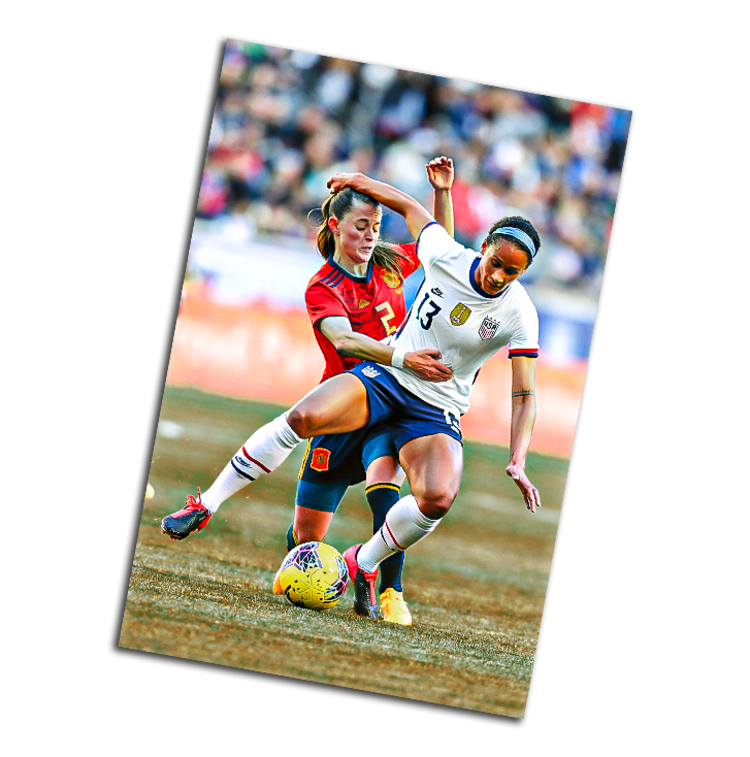
“I like to visit everything,” Batlle says. “I went to London. I really like it. I really like to see how different it is from Spain to be honest, the UK. I really like to be here.”
On the pitch, she’s only getting better. She has nailed down the modern full-back’s identity, with her defensive game so good that she describes it as being “easier” for her than attacking, despite her sometimes being a winger in the past.
“She could be soon among the best defenders in the world, but she can improve herself,” Vilda, who “values” her “courage” to move abroad, says. “Her understanding of the game and making decisions, in crosses and in her offensive capacity.”
Batlle doesn’t disagree - “I really enjoy when I'm attacking, but I just want to be more perfect, get more assists, score more” - but there’s another area she is targeting, too.
“Sometimes I think I want to be so perfect. I want to do everything right,” she explains. “Now, I'm improving, as well, my mindset because sometimes I'm too hard with myself.
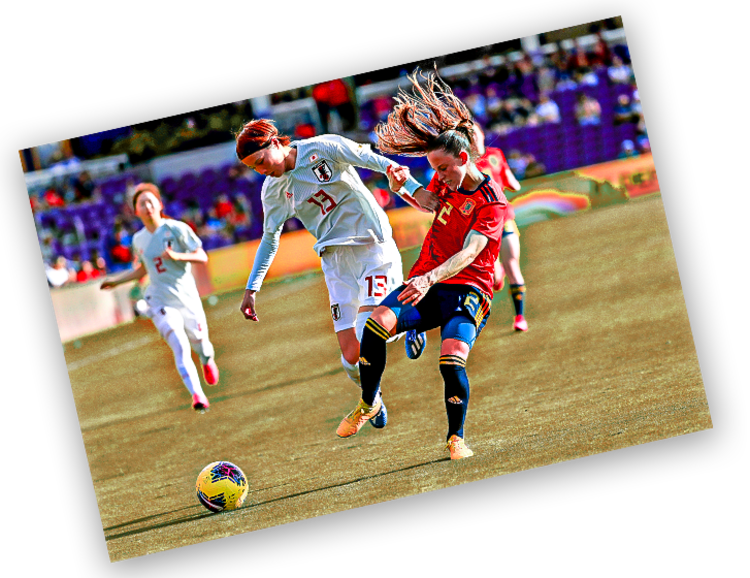
“I just want to be the best player I can be. I think I have a lot of things to work on, a lot of things to improve, but it's a thing that I like, because I know I can be much better.”
When Batlle was coming through as a young player, the women’s game in her home country was in a very different place.
Spain has a rich footballing history, but the women’s national team only qualified for its first World Cup in 2015. There, the team exited in the group stages. In the aftermath of that tournament, head coach Ignacio Quereda, who was in his post for 27 years, was dismissed. Allegations have been levelled against him by several players since, of inappropriate behaviour, bullying and psychological abuse.
In the years since, the national team has flourished under Vilda, giving the U.S. women’s national team a serious scare in the knockout rounds of the 2019 Women’s World Cup.
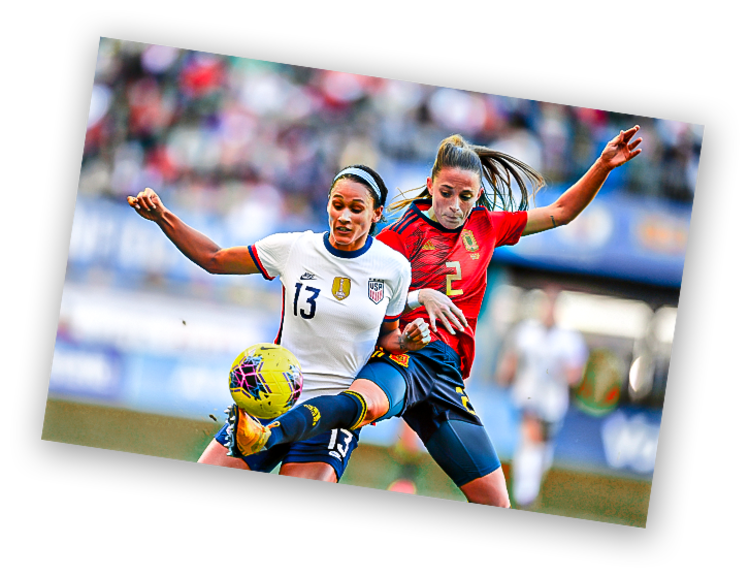
His work has coincided with the continued investment and subsequent success of European champions Barcelona. The club has set the bar high and that is only encouraging other Spanish clubs to follow suit, while naturally improving the quality of the domestic league.
Many of Barca’s players – many of whom are Spain internationals – are among the best players in the world. For Batlle, to see these players at such a high level is inspiring.
“They work so hard to be where they are,” she says. “I think they inspire everyone. Myself, I am really proud of them, and I really want to be there as well.”
With Manchester United, the 22-year-old shows - week in, week out - that she can be one of the very best. At this month’s Arnold Clark Cup, she’ll have further opportunities to do so.
Coming up against some dangerous forwards that she faces regularly – such as England and Manchester City’s Lauren Hemp – and some that she sees less so – like Germany’s Jule Brand
– Batlle’s resolve will continue to be tested. But she likes that.

Tickets to watch England, Germany, Spain and Canada play in the Arnold Clark Cup are available now.
Matches are being broadcast live in the UK on ITV.
